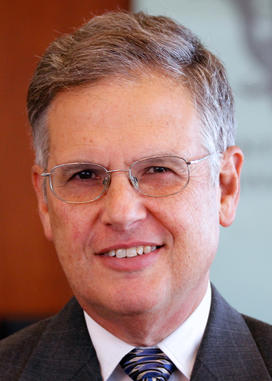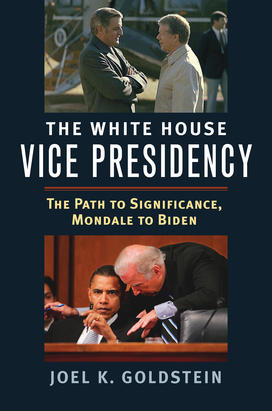As Election Grows Closer, Goldstein ’75 Releases Book on Vice Presidential Politics
Joel K. Goldstein ’75

Every four years Joel K. Goldstein ’75 begins sizing up candidates from across the country, analyzing their appeal to the public and weighing what strengths or weaknesses they might bring to the White House. But Goldstein isn’t looking toward the Oval Office — his interests lie elsewhere. He is searching for the man or woman who will wait in the wings, ready to assume the nation’s highest office, but will take on a less-glamorous role for now as the United States Vice President.
It used to be that the position was – as John Nance Garner so eloquently put it – “not worth a bucket of warm spit.” Goldstein’s new book The White House Vice Presidency: The Path to Significance, Mondale to Biden shows how much that has changed. In recent decades a series of powerful VPs have remarkably transformed the role, such that in 2008 Joe Biden stepped into an office where he could advise the president, negotiate with foreign dignitaries, and become a political force in his own right. The White House Vice Presidency explores this remarkable rise in vice presidential significance over the last several decades of American politics.

Goldstein argues that the role of the VP took a dramatic turn toward the powerful with Walter Mondale, who reformed the office and positioned himself at the center of Jimmy Carter’s White House. He touches on key moments – like Bush’s performance in the wake of the Reagan assassination attempt – analyzes the campaign strategy behind VP candidate selection, and tracks the influence of constitutional law upon the job description.
Goldstein, who is a law professor at the St. Louis University Law School, has written multiple books on constitutional law and the vice-presidency, including The Modern American Vice Presidency: The Transformation of a Political Institution. The New York Times, commenting on his scholarly career, wrote: “vice-presidential scholars form a tiny club… Joel K. Goldstein is their George Washington — or, better yet, their (Vice President) John Adams.”









No responses yet